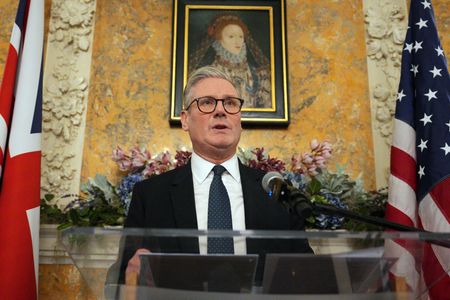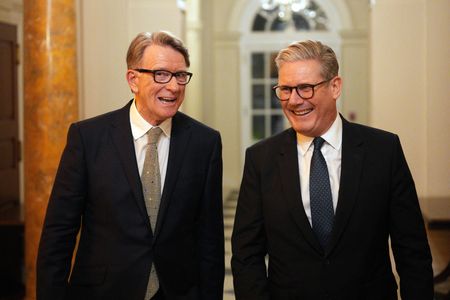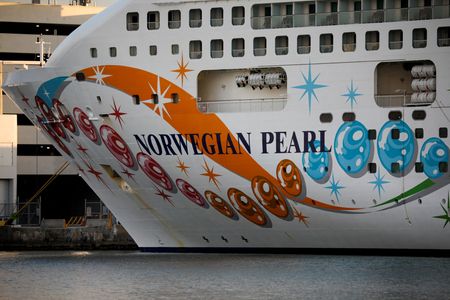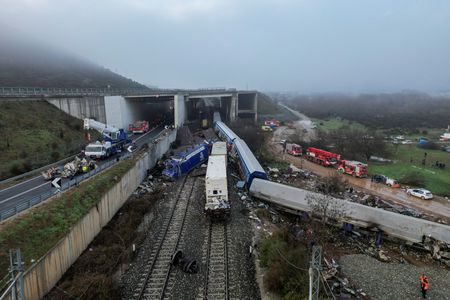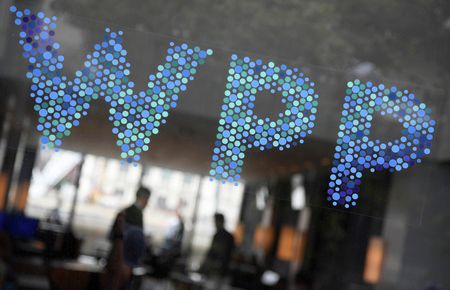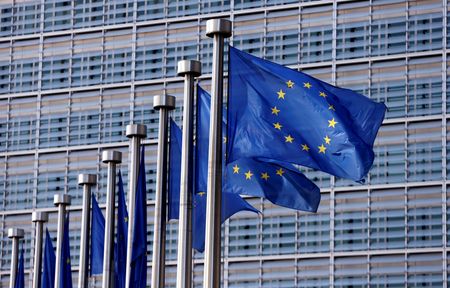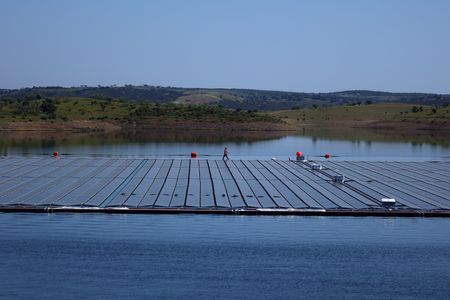By Jeff Mason and Elizabeth Piper
WASHINGTON (Reuters) – President Donald Trump and British Prime Minister Keir Starmer met at the White House on Thursday for their first in-person talks since the Republican leader upended U.S. policy on Ukraine, the Middle East and global trade.
Starmer is the second European leader to meet Trump this week after French President Emmanuel Macron came to the White House on Monday for a friendly encounter that displayed stark differences about Russia’s war with Ukraine and the U.S. push for a quick ceasefire.
Trump, who came into office on Jan. 20, has shocked traditional U.S. allies in Europe by drawing closer to Moscow and Russian President Vladimir Putin, calling Ukrainian President Volodymyr Zelenskiy a ‘dictator’, and demanding payback for U.S. financial support for Kyiv.
Zelenskiy is expected to be in Washington on Friday to sign an agreement with Trump on rare earth minerals, a deal the Ukrainian leader said would hinge on further U.S. aid. Trump portrays the deal as a way to recoup American money that has been spent to support Ukraine. It includes no specific security guarantees for Ukraine, a U.S. official said.
Starmer on Wednesday urged the United States to provide a security “backstop” for any European forces that take part in a potential peacekeeping role in Ukraine, saying that would offer Kyiv a lasting peace rather than a temporary pause in violence.
He has signaled that Britain will increase defense spending and is expected to try to reassure the U.S. president that Europe will provide support and security guarantees to Kyiv if peace talks with Russia are successful. A senior Trump administration official told reporters they were pleased with Starmer’s pledges to increase defense spending.
Trump has shattered foreign policy and domestic policy norms since the start of his second term, rattling allies by advocating for U.S. ownership of the Gaza Strip and by promising trade tariffs on U.S. friends and foes alike.
Trade was expected to be a topic between the two leaders as the U.S. president demands more reciprocity from U.S. partners, according to the Trump aide.
“We would want any economic relationship with the UK to be based on reciprocal and equal trade,” he said.
Trump’s relationship with Starmer got off to a friendly start in September with a two-hour dinner in New York at Trump Tower. The British leader’s team said the atmosphere was warm with the “gracious host” offering foreign minister David Lammy a second helping of chicken.
Like Macron, Starmer will argue that a rushed peace deal with Russia, without the participation of Ukraine or European nations, might lead to further instability in Europe, which would not be good for the United States.
Starmer has said he is open to British troops providing security guarantees to Ukraine but only alongside other European nations and with “the right conditions in place.”
European countries are concerned about the high level of conflict in Ukraine now, the U.S. official said, while a ceasefire would give them more comfort that their role is more about peacekeeping than deterring active conflict.
“The type of force depends very much on the political settlement that is made to end the war,” the U.S. official said. “That trade-off is part of what the leaders today are going to be discussing.”
(Reporting by Jeff Mason and Elizabeth Piper, additional reporting by Trevor Hunnicutt, editing by Ross Colvin, Shri Navaratnam, Philippa Fletcher)

